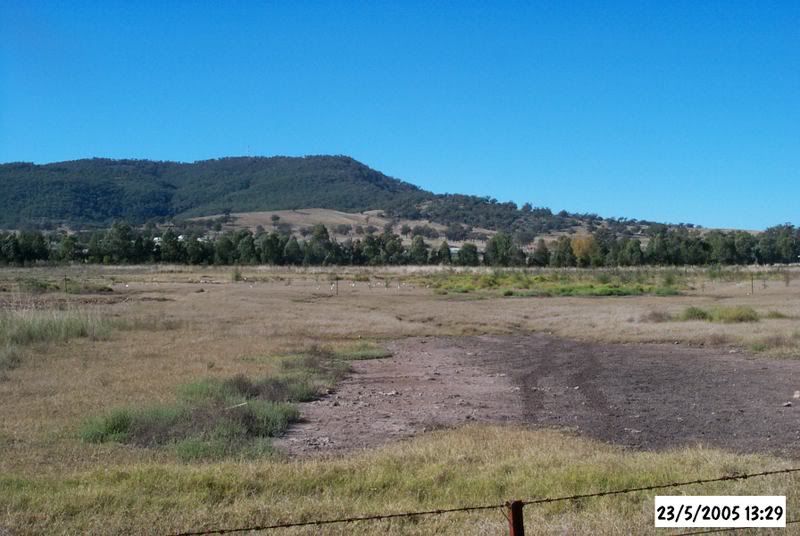
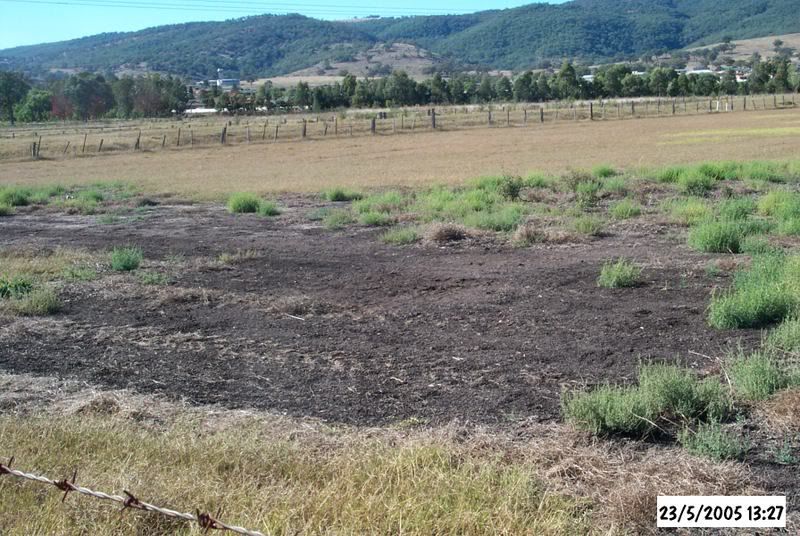
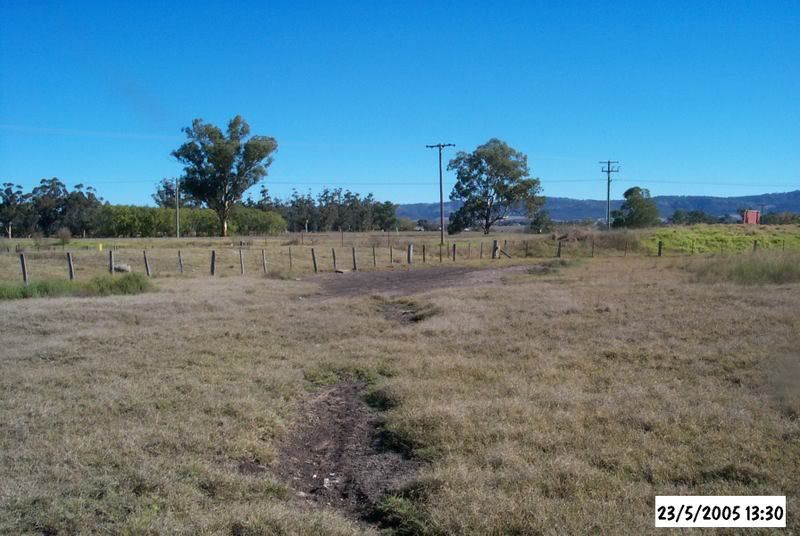
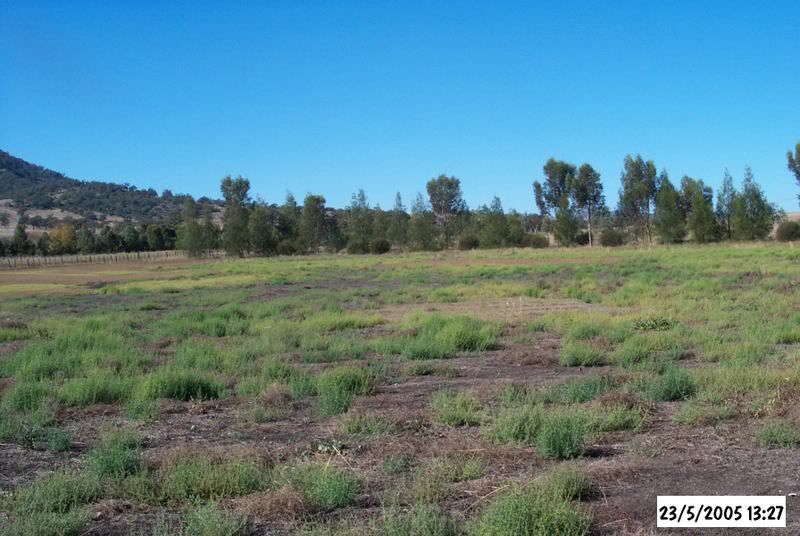
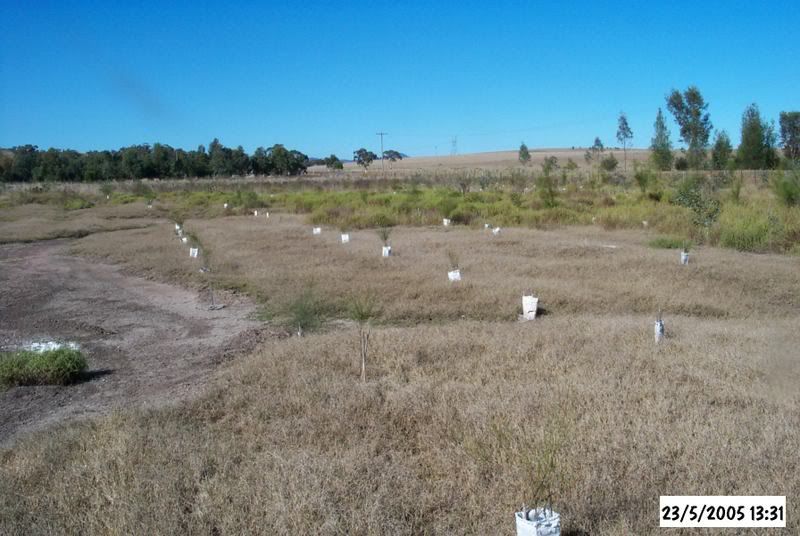 How did you go? Bare patches of ground, low in the landscape, obviously got a few problems and if you look closely you can see little patches of white, telltale signs that there's a salt problem there. Now a couple more pics.
How did you go? Bare patches of ground, low in the landscape, obviously got a few problems and if you look closely you can see little patches of white, telltale signs that there's a salt problem there. Now a couple more pics.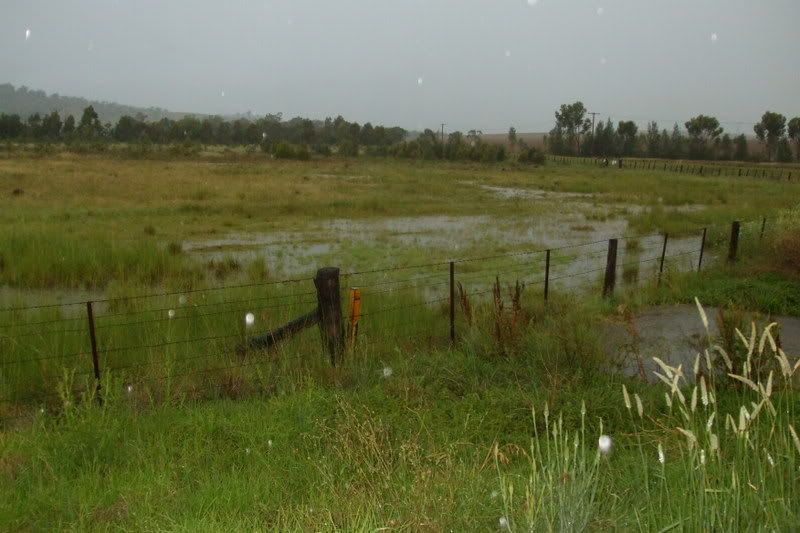
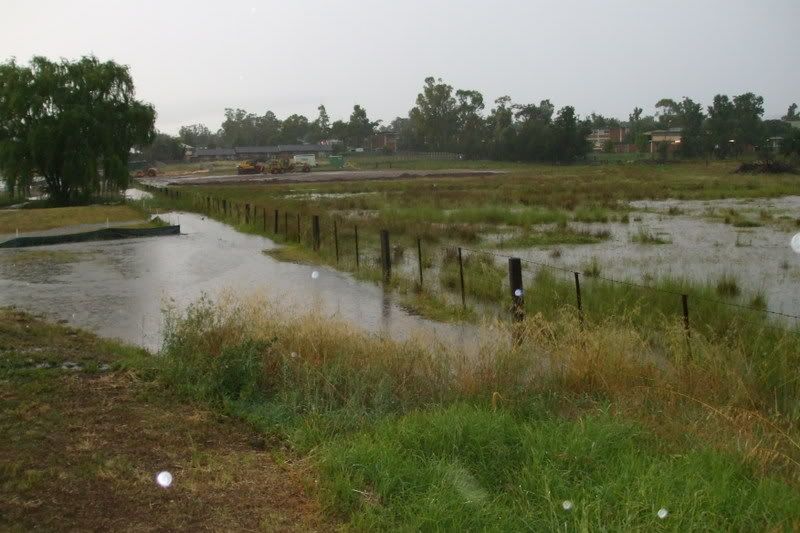
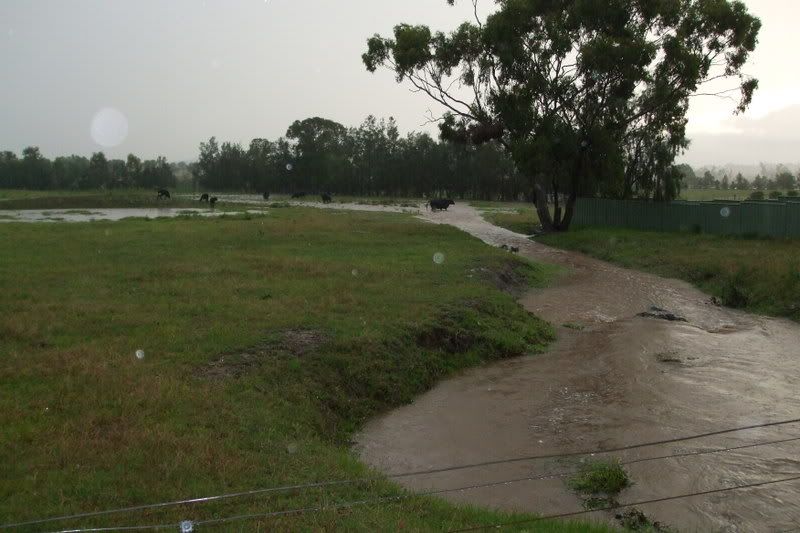 And as you'd expect for a low lying site half surrounded by urban development it's prone to flooding.
And as you'd expect for a low lying site half surrounded by urban development it's prone to flooding.Ok you ask so what am I getting at? Well here's the question knowing it was a low lying saline area prone to flooding what would you do with it? If you were smart, like Scone Landcare, you'd plant the site up with salt tolerant species to suck up the excess water, drop the watertable and get some vegetation coverage happening, which they did. The rehabilitation work was very successful, not only were the trees growing and water table dropping but native grasses were starting to recolonise bare salt scalds.
You certainly wouldn't want to whack a development on there, bulldozing a few hundred established trees, putting constrictions on a floodplain that could result in backing up of water and potentially exascerbating a salinity problem.
You wouldn't would you?
Guess what?
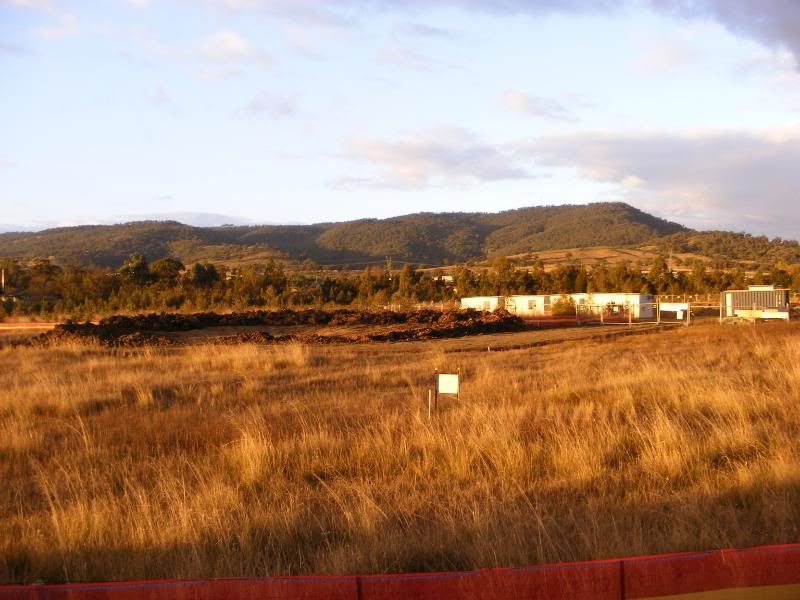
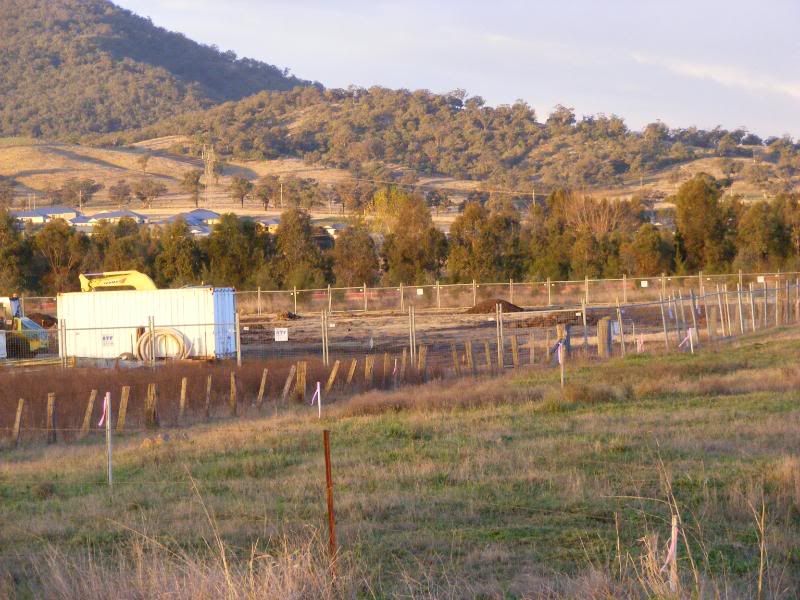
Energy Australia in it's infinite wisdom is constructing a power substation on the site. No I shit you not! Despite advice from government agencies that the site wasn't appropriate Energy Australia, as a state government entity, decided to self assess under Part 5 of the Environmental Planning and Assessment Act. The 300 odd page REF (well I can't remember exactly how big it was but it was big and I'd hate for it to fall on me) was quite impressive, especially for a development covering an area of a hectare. Now it's probably just my cynicism but I tend to distrust big documents for small developments, plenty of room to hide things. But as I said probably just me being cynical after all Energy Australia does have an Environmental Policy which states they will strive to:
"act prudently where environmental risks are uncertain and consequences serious;"
and
"assess, adequately manage and endeavour to minimise the impacts of activities we propose to carry out;"
I'm glad of all that!
The other big issue is that a growing town like Scone will need new areas of land opened up for residential and light industrial land. The obvious spots being on the edge of town including land above the site of the substation which without good planning and management will likely result in increased runoff and extra flooding of the substation site. Lucky there's a big REF we can use to mop up the water.
No comments:
Post a Comment